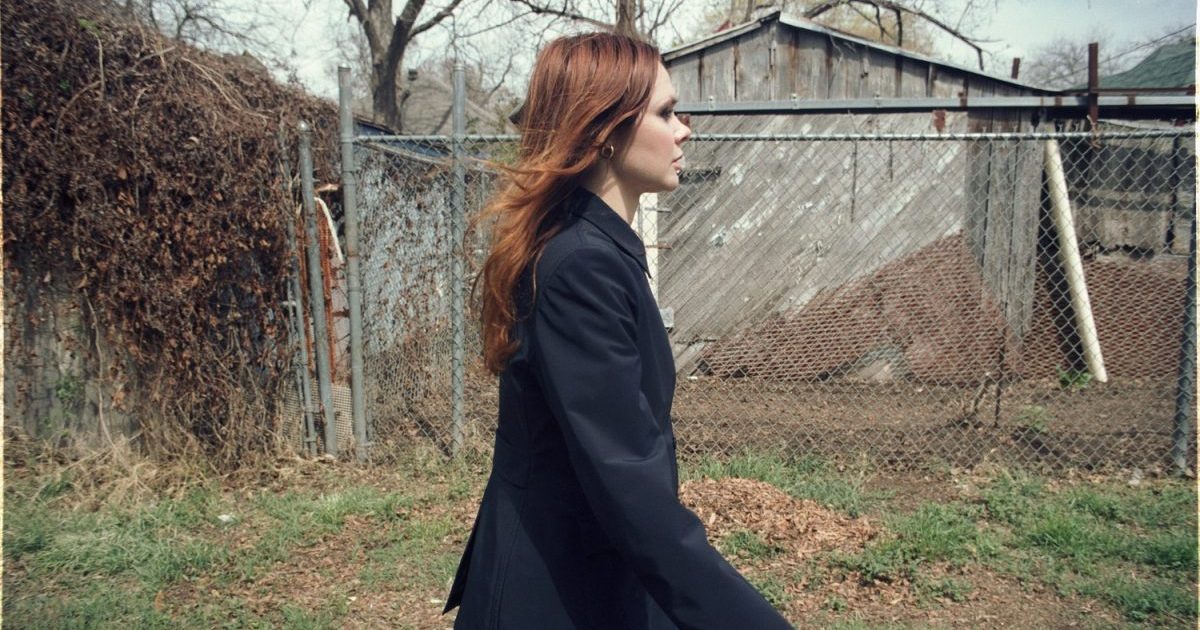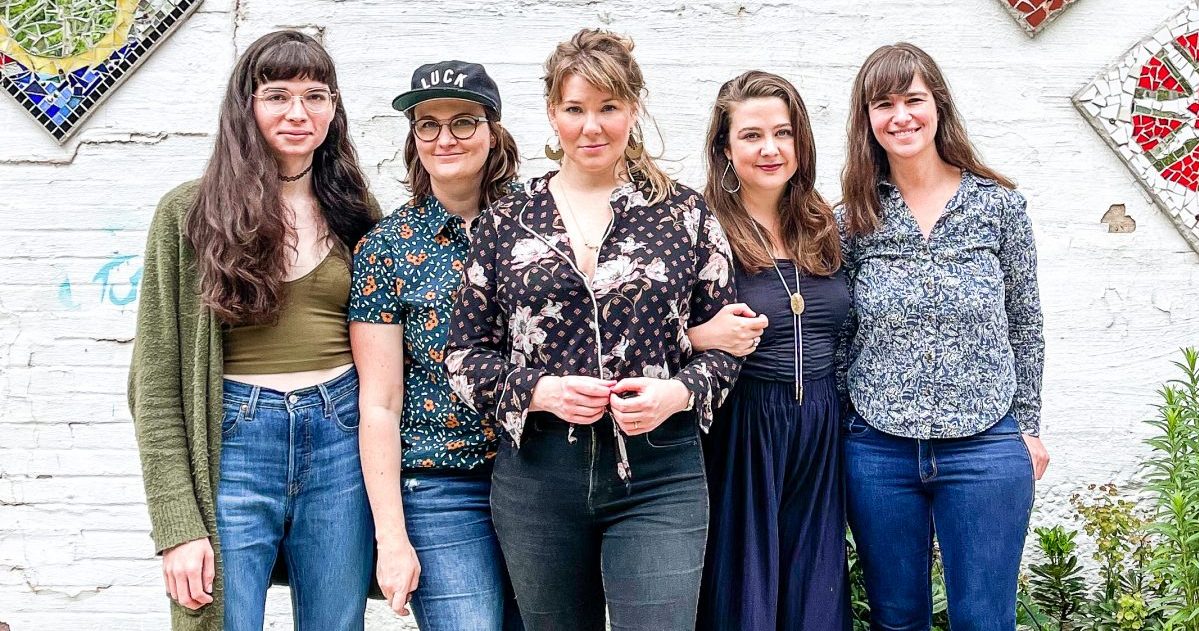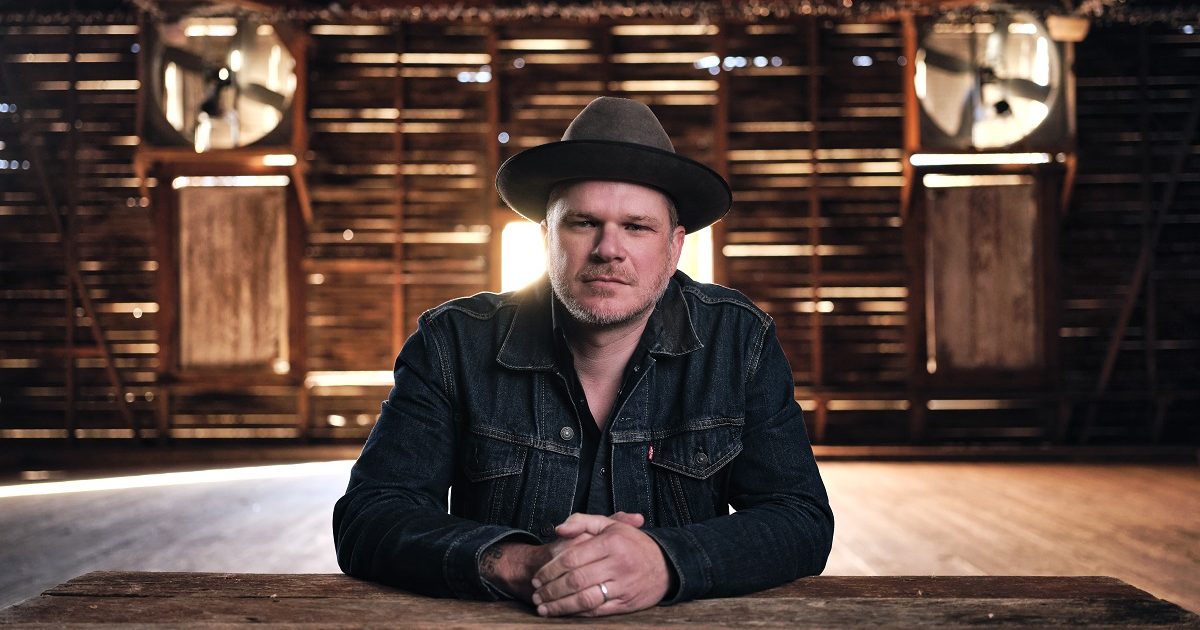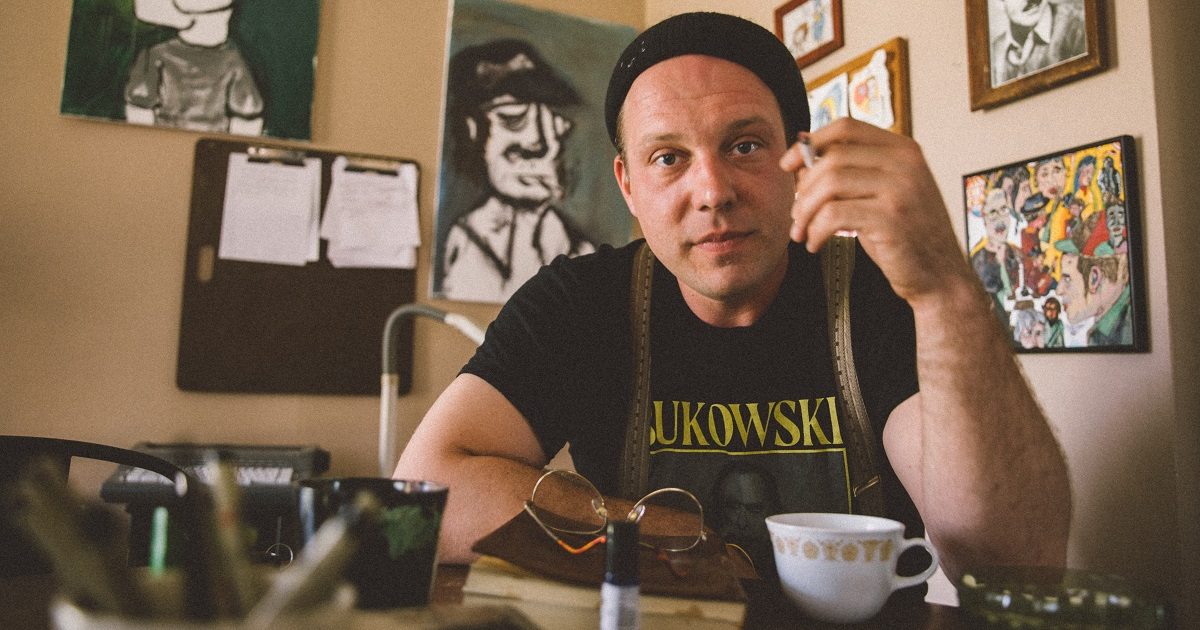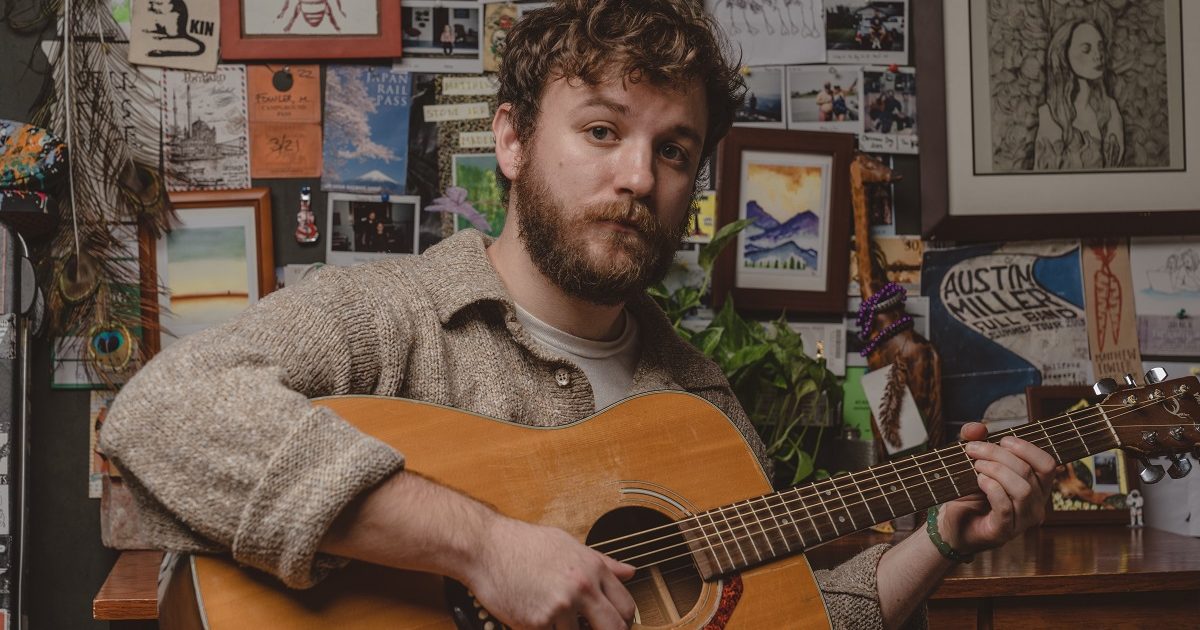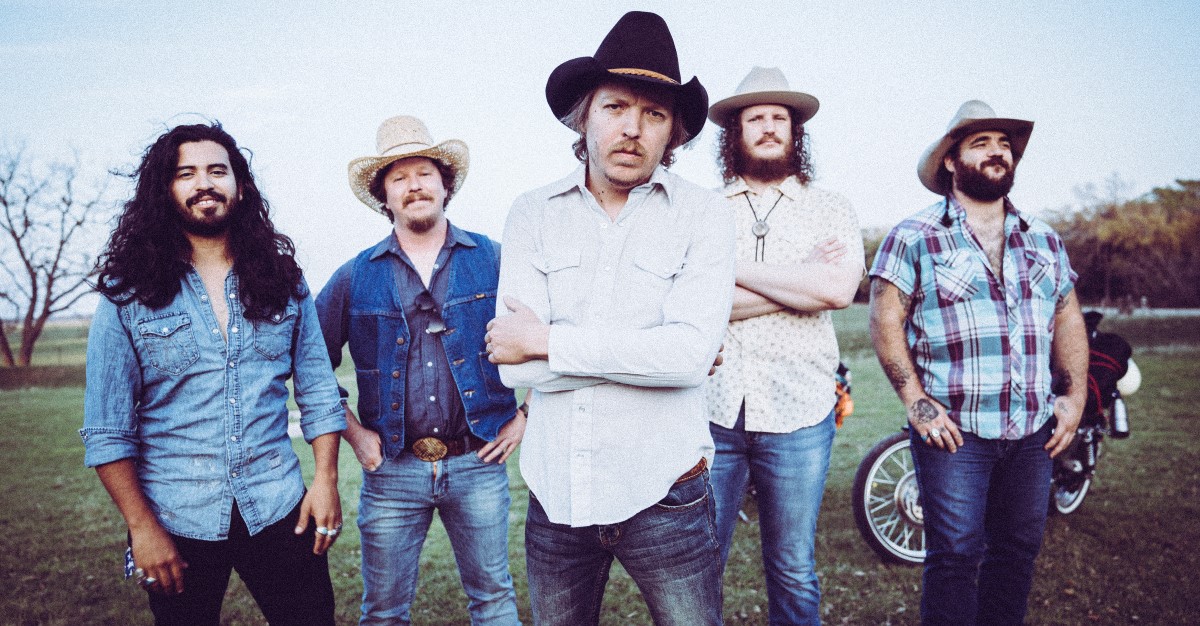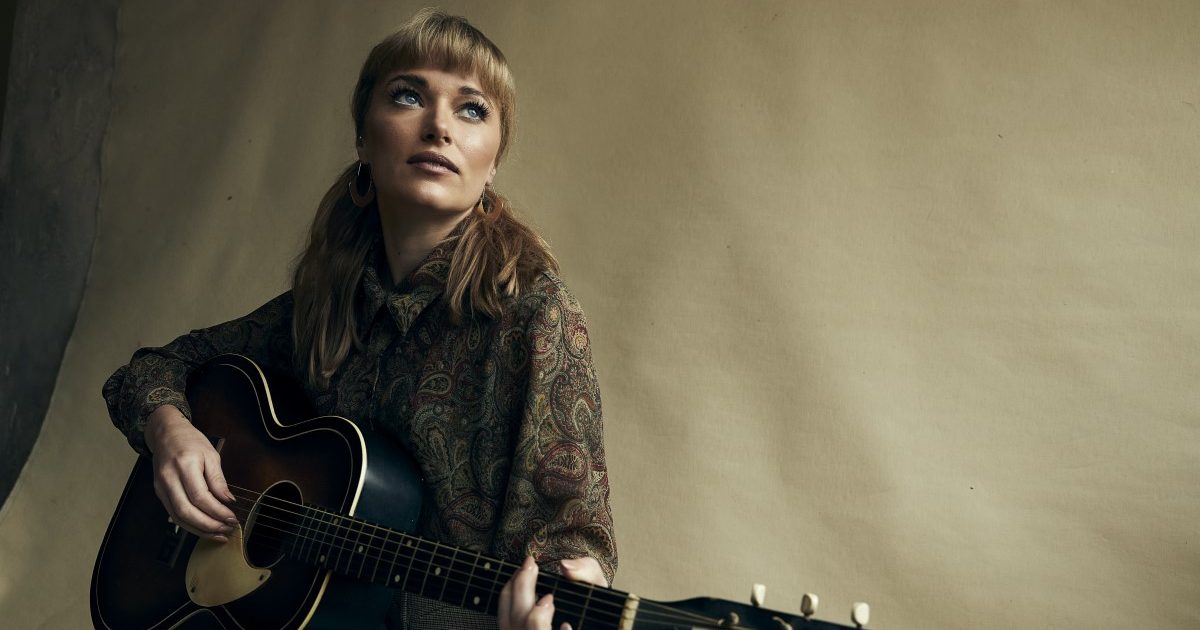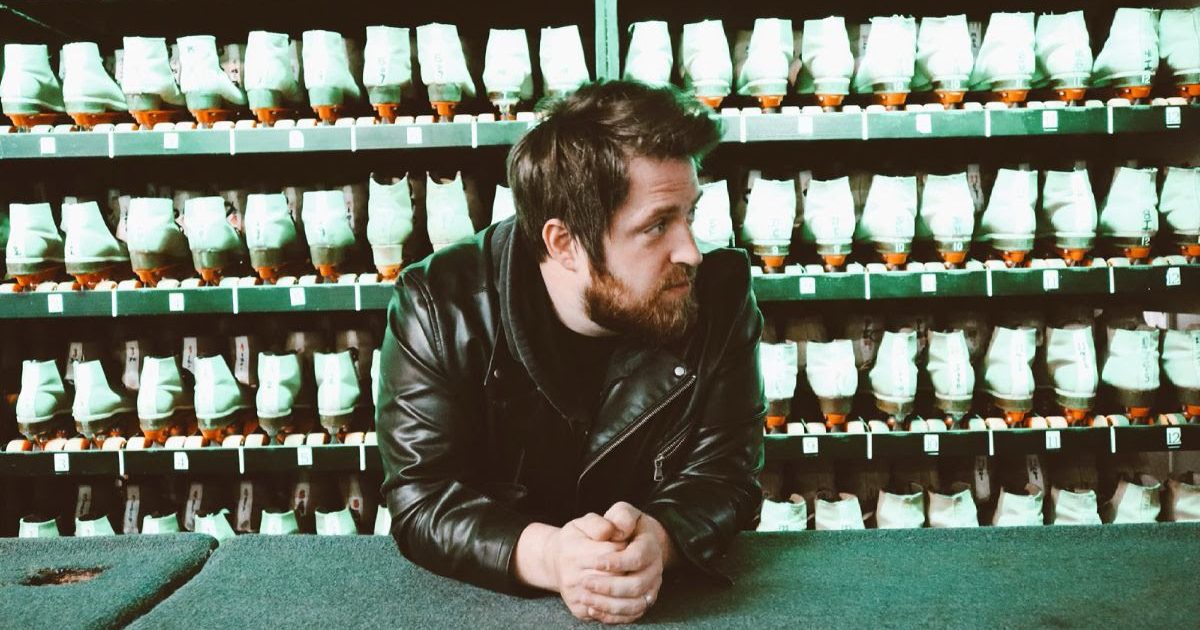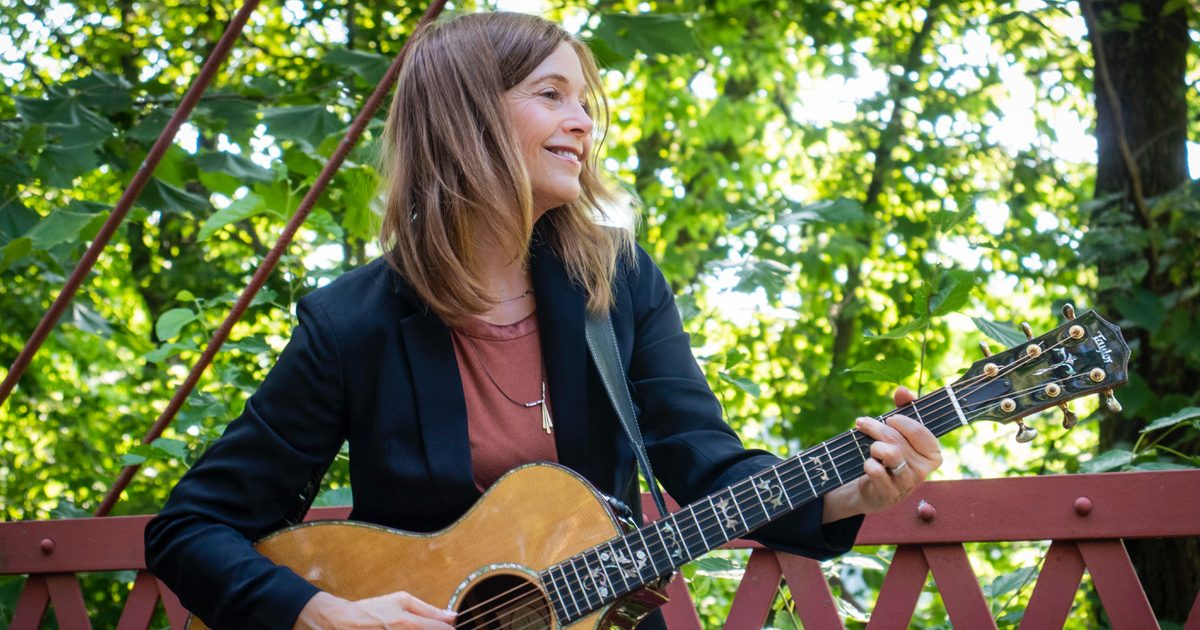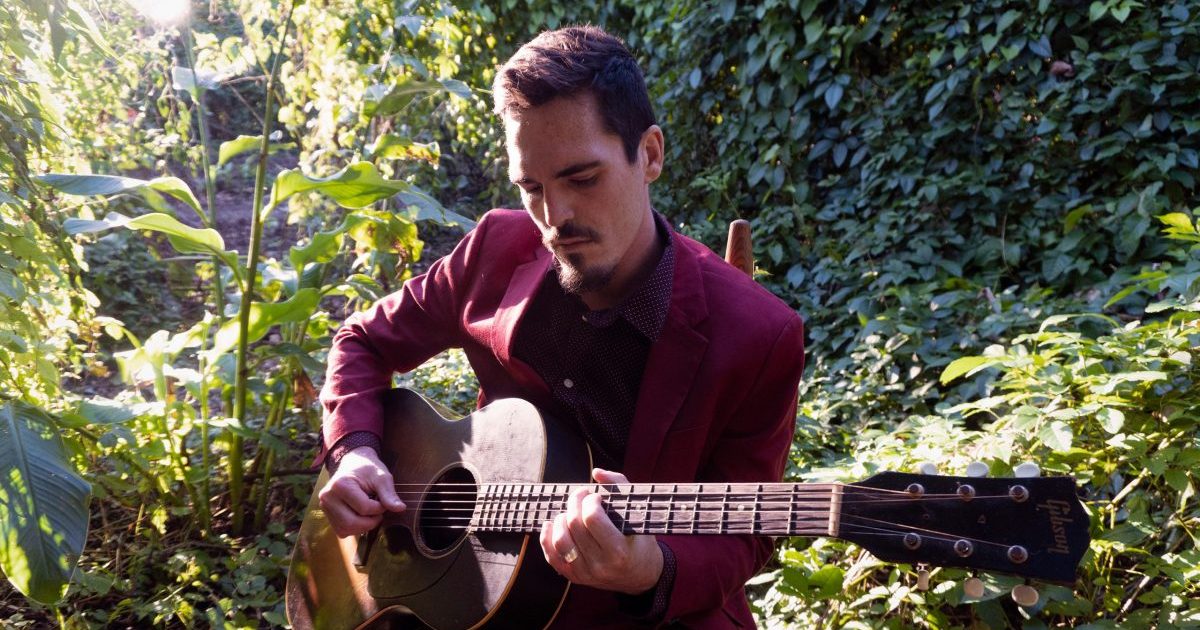Artist: Carrie Newcomer
Hometown: Bloomington, Indiana
Latest Album: Until Now (September 10, 2021)
Personal Nicknames/Rejected Band Names: My husband calls me “bunky” sometimes. 🙂 My bands have always been just The Carrie Newcomer Band. My first band was called Stone Soup.
What was the first moment that you knew you wanted to be a musician?
I don’t think it happened for me in one moment. It was a slow turning, a claiming and reclaiming, a deepening. My favorite game as a little girl was called “Makin’ Somethin’.” I was always making songs, stories, and pictures; painting, sewing, and hammering together boards; cooking or putting on plays in the backyard. I was drawn to creating just about anything, and all these years later, I’m still inordinately happy when I’m makin’ somethin’. But it took me a while to truly claim calling myself a songwriter and poet. I went to school for visual art, then later got a teacher’s license. Both are honorable vocations, but I believe I chose them because it felt too risky to follow what I loved the most: music.
During that time, I was writing songs and playing music everywhere. When I finished school, music was calling. So I followed, not really knowing where it would lead me. But even as I stepped fully into a life in music, things continued to unfold. Something good happened to my writing when I gave myself permission to sound like a “Hoosier,” to claim my own authentic Midwestern voice. Something also shifted when I stopped following music business and started following what my songs were about — asking good questions, sensing a spiritual thread, our shared human condition, finding something extraordinary in an ordinary day. My life as a musician also shifted when I stopped believing that I had to be the best singer-songwriter and knew that all I needed to do and be was the truest Carrie Newcomer.
Today, I have released 19 albums. Music still continues to be a choice. A life in the arts means you must be willing to step right up to your next growing edge and lean in. So every day — even in this time of great disruption and uncertainty, when hope feels a bit frayed at the edges, I still choose to live like an artist, approach my life as an artist, and stay true, lean in and always keep “makin’ somethin’.”
What other art forms — literature, film, dance, painting, etc. — inform your music?
I have always been a passionate reader. Of course, music has always moved me, but I am even more drawn to the way music and lyrics entwine to create something uniquely powerful. Many of my songs are inspired by literature (non-fiction and fiction) and particularly poetry. Songwriters have many ways they go about writing a song — if you ask 11 songwriters to describe their process, you’ll get 15 different ways they approach songwriting. My process often begins with writing essays, poetry, short stories and character studies. I have three books of poetry and essays: A Permeable Life: Poems & Essays, The Beautiful Not Yet: Poems, Essays & Lyrics and my newest collection Until Now: New Poems that will published as a companion piece with my new album Until Now, on September 10, 2021. I’m also a visual artist (mixed media and small sculpture) and visual imagery is always present in my songwriting. Oh, and I’m a passionate knitter.
What rituals do you have, either in the studio or before a show?
I try to find a place to get quiet. I meditate, I find my inner center so that I feel more grounded when I step on stage. I’m not a natural performer. In fact, I’m pretty private by nature, which is not uncommon for performers. But I love people, and I love music, and I love what happens when we connect through music. There is nothing like it. Music, when it’s really flowing, comes up from something deep and centered and true. It reaches into the heart of the listener where the listener is deep and true. I imagine those of you reading might know what I’m talking about.
During COVID, we all had to learn how to do this heart-reaching in new ways. I turned to online streaming, as my husband Robert Meitus is (lucky for me) one of the co-founders of Mandolin, a high-quality concert streaming service that streamed the Telluride Bluegrass Festival and RockyGrass this year. Streaming was an incredibly different performance experience. If a live in-person show is an apple and recording a performance is an orange, streaming is kind of like a kiwi. It has many similar elements, but it’s also entirely different. The exciting thing I learned was that the spirit of music really can reach further and wider than I ever expected.
If you had to write a mission statement for your career, what would it be?
If I had a mission statement for my career it would be, “be true.” My work in the world is to express what it means to be authentically human with all its ache and awe, sense and senselessness. It’s to hold fast to the power of simple kindness, to acknowledge its messiness, and to be honest about where I most need to grow. My job is to lean into unabashed delight and to be with uncontainable grief. Music reminds me that working toward a better, kinder world is not a destination as much as an orientation. My job is to put into music and language the things we feel that have no words, to do my own inner work so that I can bring what I find there to my outer calling. My job as an artist is to pay attention and ask good questions — and, as much as possible — to be kind.
Which elements of nature do you spend the most time with and how do those impact your work?
Natural imagery is almost always present in my poetry and songwriting. It is where I catch glimpses of something extraordinary (even sacred) in the most ordinary of days. I live out in the wooded hills of southern Indiana where years ago, the glaciers stopped their earth-smoothing slide south, leaving deep ravines and beautiful hills. I have walked these hills for years; these forests, creeks and small lakes have become old friends. On my wide, old-fashioned front porch, I love to sit and watch a big storm come in, to feel the drop in the barometric pressure, a rush of cool air, and then waves of summer rain. I love the quiet of the snowy hills, particularly the ones that are lined with elegant smooth beech trees. In senseless times, I take comfort in what never stops making sense, like trees and songbirds, like how the light changes in autumn and the world quiets in the winter. There is a song on the new album called “I Give Myself To This.” It is a love song about what I choose to release and what I fully embrace out in the natural world.
Photo credit: Elle Hodge
